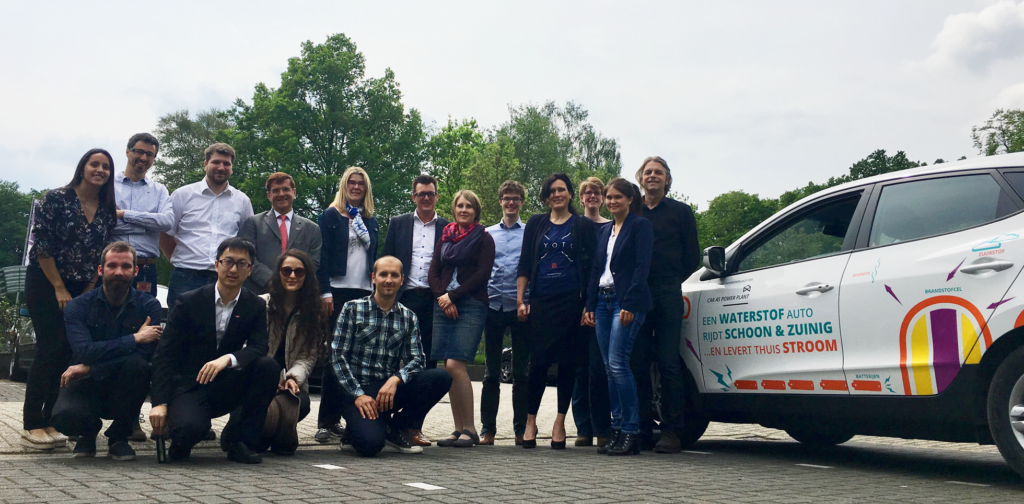written by Jorien van Loon, CESEPS Project Manager, University of Twente
Analysis of existing residential smart grid pilots, investigating smart energy products and services used in these pilots and involvement of students for the development of new products and services were some of the topics discussed by CESEPS partners at the 3rd Transnational Meeting in the Netherlands.
At the meeting CESEPS partners presented their activities and the progresses made to advance the project in terms of technology research.
In the coming months, partners of the CESEPS project (where CESEPS stands for Co-Evolution of Smart Energy Products and Service) will continue with their vibrant 3-year research on the energy performance and user interactions in smart grid pilots in the Netherlands and Austria. These partners are in the Netherlands: University of Twente, Utrecht University, TU Delft, Wageningen University and DNV GL, and in Austria: eseia, TU Graz and the Austrian Institute of Technology. The project is making momentum at the end of its first year the first results are visible. For instance, an advanced co-simulator for the evaluation of smart energy products and services (SEPS) will soon be ready for the research consortium and others. Also studies on stakeholder involvement in smart grid pilots will soon be set out in the Netherlands and Austria.
At the meeting, participants had the opportunity to test drive the hydrogen fuel cell electric vehicle (FCEV) used by the partners at TU Delft for vehicle-to-grid (V2G) studies. In follow-up meetings the CESEPS consortium will proceed to identify the exploitation plans for the promotion of the knowledge that will result from this research project.



